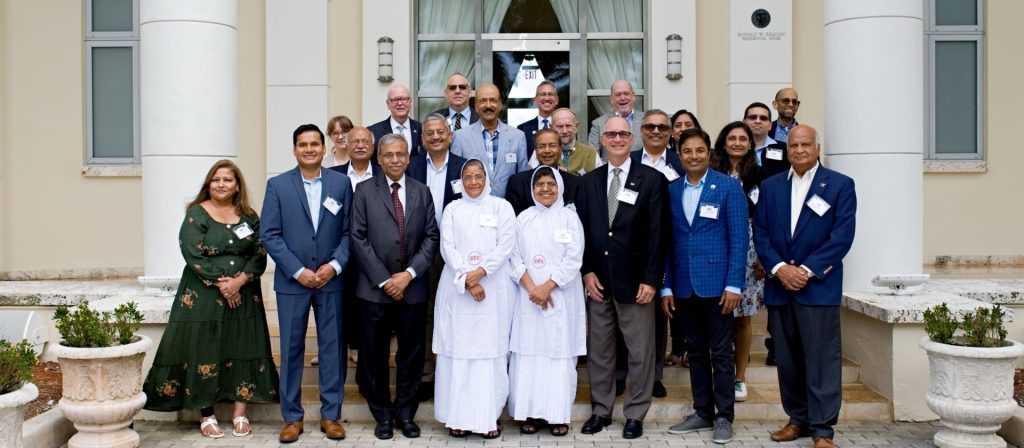–By Amy Ellis
In 2010, FIU made history by launching the first Jain Studies Program in North America. Since then, the university has pioneered Jain studies as an academic field and established the largest Jain studies library in the Southeast United States.
Now, FIU and the Jain community have taken another important leap forward, embarking on a national campaign to raise a minimum of $3 million to create an Institute for Advanced Jain Studies, to be housed in the Steven J. Green School of International & Public Affairs at FIU.
The institute will be organized as a think tank to bring Jain studies scholars together and to connect them to policymakers, social activists and industry leaders with the goal of applying Jain principles to real-world challenges.
“It is an exciting time for Jain Studies and an exciting time for the Green School,’’ said Associate Dean Jeff Gonzalez. “Our affiliated scholars and fellows will spearhead the exploration of new paths in the study of Jainism while creating tools with practical, real-world relevance and application. This is precisely what the Green School seeks to do – foster dialogue and use an interdisciplinary and multidisciplinary approach to tackle the many challenges facing our world today.”
The Jain Education and Research Foundation (JERF), which initially helped FIU launch the Jain Studies Program in 2010, joined interim President Kenneth Jessell and other university leaders this week to kick off their latest fundraising effort. JERF funds the Bhagwan Mahavir Professorship in Jain Studies at FIU, recently filled by Aleksandra Restifo, who previously taught at Yale and Oxford universities.
“This institute is another example of how we at FIU are committed to providing a world-class, well-rounded academic experience for our students, as well as creating a place for dialogue and critical thinking for our community,’’ Jessell said. “I look forward to our continued partnership as we fundraise for this important project.”
Jainism is one of the world’s oldest religions, originating in India more than 2,500 years ago. The tradition teaches that the path to enlightenment is through nonviolence and reducing harm to all living things, including plants and animals.
The new institute’s focus will go beyond traditional religious education toward ways in which the Jain tradition can help address global challenges from the COVID-19 pandemic and protracted global conflicts to climate change and poverty.
“The Jain tradition emphasizes intentionality and compassion in dealing with others,’’ said Nirmal Baid and FIU almnus Sapan Bafna, MBA ’99, founding directors of JERF and co-chairs of the board, in a joint statement. “The institute will pilot the evolution of Jain studies to an interdisciplinary understanding of the tradition as having broader social, political and economic dimensions.”
The institute will also work closely with other programs within the Green School and across FIU, including the Václav Havel Program for Human Rights and Diplomacy, Mohsin and Fauzia Jaffer Center for Muslim World Studies and the Chaplin School of Hospitality & Tourism Management’s research on commercially viable vegan diets.
“We are grateful to the Jain Education and Research Foundation and the local Jain community for entrusting FIU and the Green School with this important mission,’’ said Erik Larson, chair of the Department of Religious Studies at FIU. “We believe the teachings of the Jains – that of non-violence and no harm – have much in common with the mission of the Green School, which is to create a more just, peaceful and prosperous world.’’
Added Iqbal Akhtar, professor of religious studies and director of the Jain Studies Program: “It is our hope that through the institute we can also bring greater public awareness to the contributions of the Jain civilization to our shared global heritage.”

